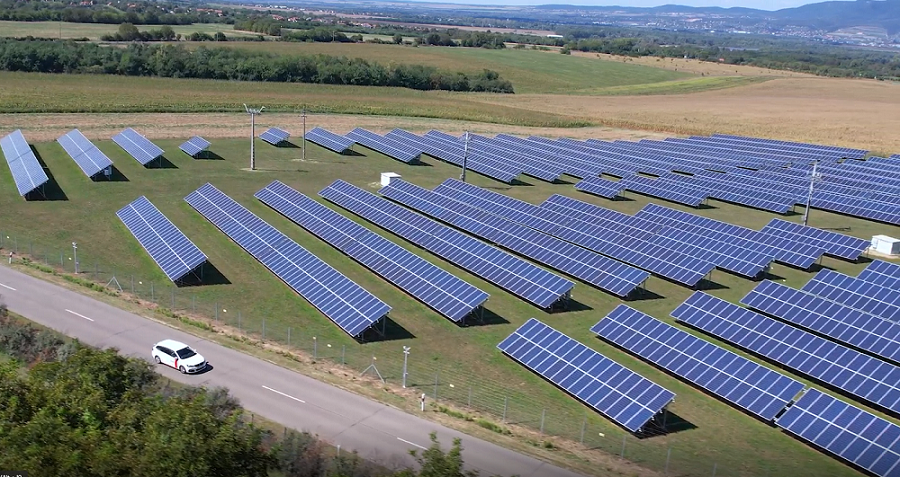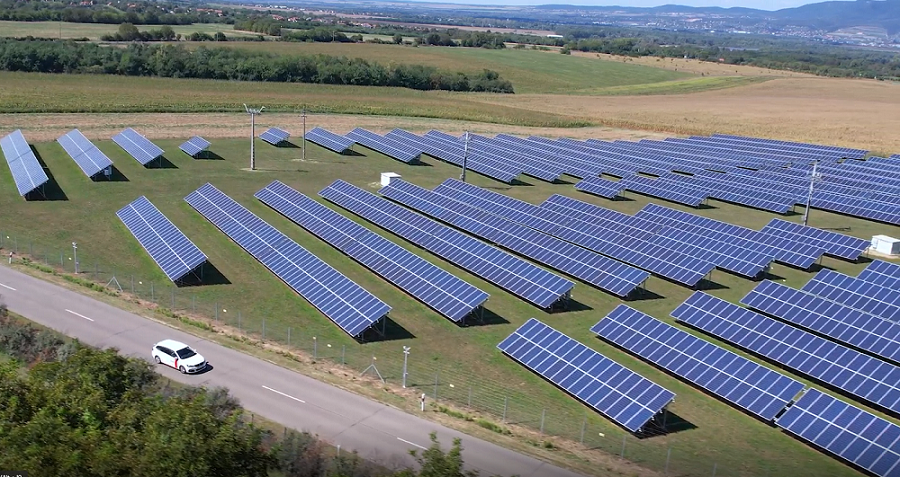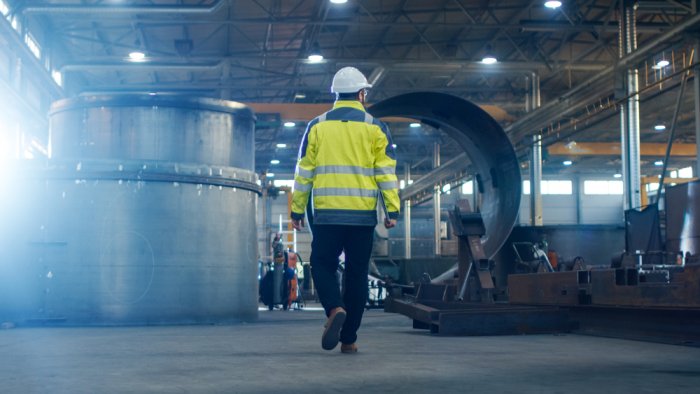Construction Industry Must Move Towards Carbon Neutrality

The Hungarian Green Building Council’s 2023 Green Future Conference.
Debate continues about how international carbon emission reduction can best be achieved in the continuing struggle against climate change. Economic and financial mechanisms are seen as necessary to direct market actors toward activities that are less harmful to the environment and to underline the concept that there is more profit with sustainability.
One thing is sure, as was made clear at the annual Hungarian Green Building Council (HuGBC) Green Future Conference, sponsored by the German Embassy in Budapest. Analysts and professionals agree that the built environment still has a long way to go to meet carbon emission reduction, sustainability and ESG goals.
Climate protection is essential for creating a sustainable and livable environment for the next generation. This year’s conference subtitled Critical Crossroads: Towards Carbon Zero Buildings, focused on the carbon reduction roadmap, EU taxonomy, green real estate financing and international and national best practices.
To become a competitive, resource-efficient real estate economy by 2050, we must move to net zero carbon operations, with sectorial cooperation, innovation, life-cycle thinking and renovation as critical elements.
“The building and construction sector accounts for 37% of the global energy-related emissions and 34% of global energy demand. The rebound in global buildings and construction emissions highlights the need for structural change,” commented Catriona Brady, director of strategy and development of WorldGBC, on why the built environment is imperative for Agenda 2030.
The conference explored the international framework for building a zero-carbon 2050. The event also introduced the national framework and situational picture towards zero-carbon 2050. Industry players showed what each sub-sector can contribute to the zero-carbon vision with concrete examples and results.
Climate-positive Buildings
One of the keynote speakers, Christine Lemaitre, CEO of the German Sustainable Building Council (DGNB), gave a presentation on climate-positive buildings. She explained how the decarbonization roadmap helps to achieve the target and offered building-level case studies with carbon reduction solutions and data on results.
Dirk Bartsch, senior analyst at one of Germany’s leading real estate financers, spoke about green financing in the construction sector, what the zero carbon vision of 2050 means for a financial institution, and what a bank can do with its building portfolio and green finance to help the construction industry go carbon neutral.
Daniella Huszár, head of HuGBC’s Advancing Net Zero project, presented the results of the Hungarian council’s Zero Carbon Recommendation industry consultations.
“The aim of the consultation is to assess the awareness and current activity of the Hungarian construction market on the decarbonization of buildings and to lay the groundwork for the necessary next steps in the zero-carbon transformation, the zero-carbon roadmap and strategy for the construction industry,” she said.
“We think that there is so much happening on the market towards sustainability, especially in the financial sector, that it is now a crossing point for many stakeholders, as it is indeed a future-proofing issue that they have to undertake; otherwise they will have some major financial problems,” explained Zsombor Barta, a former president and now ambassador of the HuGBC.
“We have seen some projects on the market that are very highly rated, but if you look at its decarbonization pathway and how it performs, then it turns out that this particular building or project is not performing very well because its emissions are too high and immediately investors and also financial institutions think the financial risk associated with these projects is very high,” he said.
Crossing Point
“Therefore, we are at a crossing point, and decision-makers have to decide in which direction they would like to go and if they would like to be future-proofed and mitigate their financial risk,” Barta explained.
“We are talking not only about the benefits for the environment; these are nice things, but, in all honesty, in the real estate sector, profits and money are things that count in the end. If your profits and financial risks can be mitigated and reduced and your financial benefits from financial institutions can provide more incentives or more beneficial financial terms and conditions, then immediately you have to move towards sustainability, Whether this is called ESG or EU Taxonomy or the Paris Agreement,” he added.
In today’s landscape, investors are using ESG as a screening method for choosing whether to place their money. Therefore, the demand for delivering ESG-compliant products has accelerated since 2014. Thus, the EU Taxonomy works, as money only comes to ESG products, said Hubert Abt, founder & CEO OF Workcloud 24, at the CEO Networking Breakfast, part of the Europaproperty CRE Awards at the Intercontinental Budapest.
“Properties which do not have any ESG efforts or activities are passed over for projects that are dedicated to ESG and which incorporate sustainable practices into their concept. The IRR [internal rate of return] can be doubled with due ESG compliance,” he said.
The problem remains that, according to European building data, 97% of standing assets in the EU are not ESG compliant. However, by working towards an ESG framework, you will likely learn a lot about your operations and your customers’ needs.
“Today’s ESG principles are becoming tomorrow’s laws. Complying with governmental regulations is a priority for any business. Having a strategy and being prepared for future regulations will improve your bottom line in the long run, as you can avoid fees and other noncompliance-related adverse impacts,” Abt said.
This article was first published in the Budapest Business Journal print issue of November 3, 2023.
SUPPORT THE BUDAPEST BUSINESS JOURNAL
Producing journalism that is worthy of the name is a costly business. For 27 years, the publishers, editors and reporters of the Budapest Business Journal have striven to bring you business news that works, information that you can trust, that is factual, accurate and presented without fear or favor.
Newspaper organizations across the globe have struggled to find a business model that allows them to continue to excel, without compromising their ability to perform. Most recently, some have experimented with the idea of involving their most important stakeholders, their readers.
We would like to offer that same opportunity to our readers. We would like to invite you to help us deliver the quality business journalism you require. Hit our Support the BBJ button and you can choose the how much and how often you send us your contributions.












